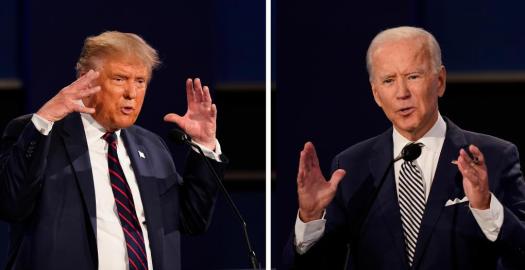A Third COVID Vaccine Is Shown to Be Effective—and It’s Cheap
Why Won’t Emily Murphy Just Do Her Job?
Why is the ‘anti-vaxxer’ movement growing during a pandemic?
The vaccine sweepstakes continue as AstraZeneca just announced its entry, which promises to be cheaper and easier to store than those of its competitors. Good—because refrigerated 90-below-zero trucks costing millions will be breaking down everywhere. Logistics for distribution will be unthinkable. People won’t show for their second shots. And we’re going to be deluged with costly vaccines that a majority of the populace, the anti-vaxxers, won’t even take.
And none of this will happen until thousands more have died. After announcing to the press once again that he had won the election, Trump said, “You wouldn’t have had a vaccine for another four years if it wasn’t for me.” Nor would we have had the horrific escalating death tolls from Covid if it wasn’t for him. We know too that more people will be dying because Trump’s emissary won’t just do her job and acknowledge the transition.
As head of the General Services Administration, Emily Murphy has endorsed the president’s delusions and crimes against humanity by failing to follow the law and let the transition begin. Her slavish obstruction enables Trump’s Disease, not to mention Covid, to continue running rampant.
We have no effective treatment or vaccine against Trump’s Disease. You know the symptoms: constant delusions of narcissism, blatant denial of the facts, lying, the propensity to promote snake oil and fraud. Seventy million supporters have proved that we have no cure for the madness; there is no restorative therapy at hand. The Trump herd has achieved its gross immunity.
We also know that one manifestation of the disease is all about revenge. A pundit who consistently tracks Trump’s revenge is Jonathan Chait, who writes for New York Magazine. Chait notes that
crippling Biden’s pandemic response seems to be not a side effect of [Trump’s] strategy but the intended one. Trump not only doesn’t care about managing the pandemic; he is very publicly enraged at the idea that Biden will receive any credit for vaccine distribution. . . . For the sake of both his pride and a possible election rematch, Trump wants Biden to fail and will take whatever steps are at his disposal—including the loss of many more American lives—to bring about that outcome.
It would be folly to channel our hopes on some kind of mythical vaccine that will inoculate us against the worst political disease of our time. The best we can hope for, I guess, is something from AstraZeneca.
P.S. Oops, I wrote this last night before the news came in that Emily and the GSA have caved and at last informed the Biden group that the transition can now officially begin. I still stand by what I wrote here.












